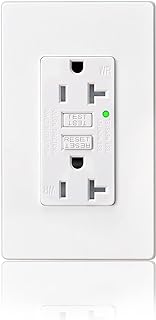Ever wondered about the intricacies of mobile home wiring? Understanding the ins and outs of this crucial aspect is paramount. From its historical evolution to the present day, mobile homes have come a long way, especially concerning their electrical systems. Proper maintenance and safety precautions for mobile home wiring are non-negotiable for ensuring a secure living environment. With an overview of why comprehending mobile home wiring is essential, let’s delve into its significance and how it impacts daily life within these unique residences. In this article Mobile Home Wiring we will explain all the ins and outs to wiring.
Understanding Manufactured Home Electrical Basics
Electrical Components
In a mobile home wiring, the electrical system consists of several components. These include circuit breakers, outlets, switches, and light fixtures. The circuit breaker panel is the central point for controlling the electricity in the home. Outlets are where you plug in your devices, while switches control lighting and other fixtures.
The wiring in a mobile home typically runs behind walls and ceilings to connect these components. It’s essential that all these parts work together seamlessly to ensure a safe and functional electrical system.
Grounding and bonding are crucial aspects of mobile home electrical systems as they help prevent electric shock and fires.
120-Volt vs. 240-Volt Systems
Understanding the difference between 120-volt and 240-volt systems is important when dealing with mobile homes. Most standard outlets operate on a 120-volt system, which is suitable for powering common household devices such as lamps, televisions, or phone chargers.
On the other hand, certain appliances like air conditioners or ovens require more power and thus operate on a 240-volt system. These appliances need special outlets designed to handle higher voltage levels to function properly.
It’s crucial to be aware of which areas in your mobile home use each type of voltage so that you can safely install compatible devices without overloading circuits or causing damage to your electrical system.
Grounding and Bonding
Grounding involves connecting all metal parts of an electrical device or appliance directly to the earth through wires buried underground. This ensures that any stray current has somewhere safe to go rather than posing a risk inside your home.
Bonding refers to connecting all metal non-current-carrying parts together so they’re at the same level of electric potential (voltage). This prevents dangerous voltage differences between conductive materials within your mobile home.
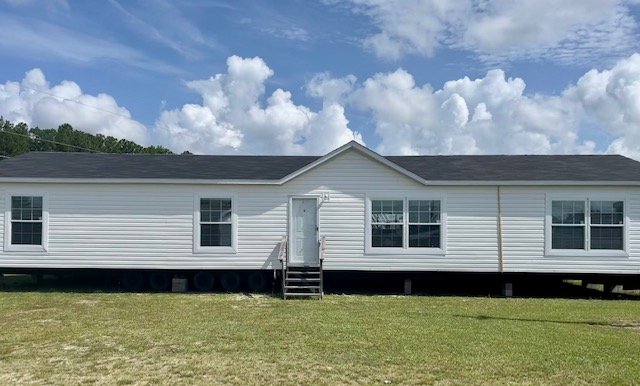
Ensuring Electrical Safety in Mobile Homes
Preventing Electrical Hazards
Mobile home wiring requires regular inspections to prevent fire hazards and ensure the safety of the house. Over time, wear and tear can lead to frayed wires or loose connections, increasing the risk of electrical malfunctions. To prevent these hazards, homeowners should schedule routine electrical inspections by certified professionals. During these inspections, experts can identify potential issues and address them before they escalate into major problems.
Regular inspections also help in detecting outdated or faulty wiring systems that may pose a danger to the mobile home’s occupants. By identifying these issues early on, homeowners can take proactive measures to update their wiring systems and mitigate potential risks.
Safety Measures for Mobile Homes
One crucial safety measure for mobile homes is installing Ground Fault Circuit Interrupter (GFCI) outlets in areas prone to moisture such as kitchens, bathrooms, and outdoor spaces. GFCIs are designed to quickly cut off power when they detect an imbalance in the flow of electricity, thus preventing electric shocks and reducing the risk of electrocution.
Another essential component for ensuring safety in mobile homes is smoke detectors. These devices play a critical role in alerting residents about potential fire hazards, providing them with ample time to evacuate safely if a fire occurs.
To order these important ground fault outlets click the link here shipped directly to your doorstep.
Troubleshooting Power Surges and Outages
Common Causes
Power surges and outages in mobile home wiring can be caused by various factors. These include issues with the power company’s services, such as grid overloads or maintenance work. Faulty appliances, damaged wiring, or lightning strikes can also lead to power fluctuations.
When experiencing a power surge or outage in your mobile home, it’s essential to first check if the issue is localized to your property. If other homes in the area are also affected, contacting the power company for assistance is crucial. However, if the problem seems to be isolated to your mobile home only, there are steps you can take before seeking professional help.
Steps to Take
If you experience a power loss due to a surge or outage in your mobile home wiring, start by checking the circuit breakers or fuses. A tripped current moderator indicates an overload on that specific circuit and needs resetting. Unplug all electronic devices during this process to reduce any risk of damage from sudden power restoration.
After addressing any internal issues within your control and ensuring that there are no problems with individual appliances causing the surge or outage, consider reaching out for professional assistance when necessary. Contacting an electrician becomes important when dealing with complex electrical concerns beyond basic troubleshooting measures.
Identifying and Fixing Loose Sockets and Flickering Lights
Identifying Issues
Loose sockets and flickering lights in a mobile home can be a common problem. If you notice that the lights in your living room or closet are flickering, it could indicate an issue with the electrical connection. Similarly, if the porch light or ceiling light flickers, there might be a loose plug or faulty connection.
When checking for loose sockets, take note of any visible damage to the plugs or outlets. Look for signs of wear and tear on the connections and inspect them closely to see if they are secure. Using a photo meter socket can help identify irregularities in the electrical flow by measuring voltage fluctuations.
Fixing Loose Sockets
To fix loose sockets in your mobile home, start by turning off the power supply to prevent any accidents. Then carefully examine each plug’s connection to ensure they are snugly fitted into their respective outlets. If you find any damaged plugs or outlets during this inspection, replace them promptly to avoid further issues.
When replacing faulty light bulbs causing flickering, consider using LED bulbs as they tend to have longer lifespans and consume less energy compared to traditional incandescent bulbs. Moreover, always follow safety protocols when working with electricity – wear rubber-soled shoes and use insulated tools when handling wiring.
Importance of Prompt Action
Addressing these issues promptly is crucial as neglecting loose sockets or flickering lights can lead to more severe problems such as electrical fires or damage to electronic devices connected through those outlets. By taking immediate action upon noticing these issues, you can prevent potential hazards and safeguard your property from costly damages caused by faulty wiring.
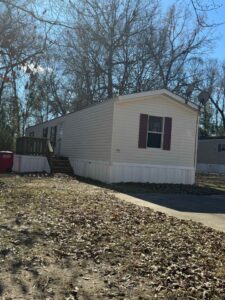
Addressing Circuit Overload and Bulb Wattage Issues
Signs of Circuit Overload
In a mobile home’s electrical system, circuit overload can manifest through tripping breakers, flickering lights, warm or discolored wall plates, or buzzing sounds from outlets. These signs indicate that the circuits are carrying more current than they can handle.
Circuit overloads occur when too many devices are plugged into an outlet or when high-wattage appliances draw excessive power simultaneously. This puts stress on the wiring system and poses a fire hazard. It’s crucial to address circuit overload promptly to ensure safety within the mobile home.
To alleviate circuit overload issues, homeowners should consider redistributing loads across different circuits. For instance, spreading out kitchen appliances like microwaves and blenders onto separate outlets can help balance the electrical load effectively.
Reducing Circuit Overload
Another effective measure for reducing circuit overload is upgrading the electrical panel in the mobile home. By installing a higher amperage panel with additional circuits, homeowners can distribute electricity more evenly throughout their living space. This prevents any single circuit from bearing too much load at once.
It’s essential to use appropriate bulbs in fixtures to prevent overheating and potential fire hazards. Using bulbs with wattages that exceed fixture recommendations may lead to overheating of wires and sockets.
Importance of Appropriate Bulb Wattage
Choosing bulbs with wattages higher than what the fixtures are designed for poses significant risks as it increases heat production within enclosed spaces such as light fittings or lampshades. This heightened temperature could potentially lead to melting insulation around wires or even ignite nearby flammable materials.
On the other hand, using lower-wattage bulbs than recommended by fixtures may result in insufficient lighting levels for specific areas within the mobile home. In addition to compromising visibility, this practice might cause premature bulb burnout due to constant strain on lower-wattage bulbs in high-demand areas.
Pros:
Redistributing loads reduces stress on individual circuits.
Upgrading electrical panels enhances overall safety within a mobile home.
Using appropriate bulb wattages minimizes fire hazards associated with overheating.
Cons:
Neglecting circuit overload issues may lead to electrical fires.
Incorrect bulb wattages can compromise both safety and illumination levels within a mobile home.
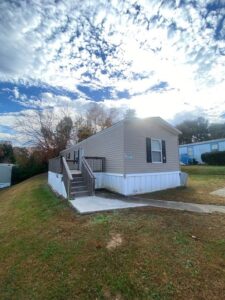
Running Electrical Wire in a Mobile Home
Choosing the Right Wire
Selecting the appropriate type and size of wire is crucial. For new wire installations or extensions, it’s essential to choose wires that are suitable for the specific application. Different types of wires are designed for various purposes, such as powering appliances, lighting fixtures, or outlets. Consider factors like amperage requirements and voltage when choosing the right wire for each application. For example, extension cords require different wire types compared to wiring running through wall studs.
It’s important to consider safety standards when selecting electrical wires for a mobile home. The National Electric Code (NEC) provides guidelines on choosing the correct wire gauge based on its intended use and location within the mobile home. Following these guidelines ensures that the wiring meets safety requirements and reduces the risk of electrical hazards.
Safety Precautions During Installation
During any electrical work in a mobile home, safety should be a top priority. Before starting any installation process, ensure that all power sources are turned off to prevent electrocution or electrical fires. It’s also essential to use tools specifically designed for electrical work to minimize potential risks.
When running electrical lines through a mobile home, take into account where they intersect with other lines or marriage lines – where two halves of a double-wide mobile home meet – as these areas may have specific regulations regarding wiring placement and protection.
Always use appropriate protective gear such as insulated gloves and goggles while handling wires during installation processes inside walls or ceilings. Make sure all connections are secure by using proper connectors and following manufacturer recommendations closely.
Common Electrical Problems and Their Solutions
Tripped Circuit Breakers
Tripped circuit breakers are a common electrical problem in mobile homes. This issue occurs when there’s an overload or short circuit, causing the breaker to trip and cut off the power supply to prevent damage. To solve this, first, identify which breaker has tripped by checking the position of each switch. Then, switch it off completely before turning it back on to reset it. If the problem persists, it’s essential to seek professional help as there could be an underlying electrical problem that needs expert attention.
In some cases, frequent tripping can indicate a more serious electrical problem, such as faulty wiring or overloaded circuits. It’s crucial not to ignore persistent issues with tripped breakers as they could pose safety hazards and lead to further damage within the mobile home’s electrical system.
Faulty Outlets
Faulty outlets are another prevalent electrical problem encountered in mobile homes. Signs of faulty outlets include sparks when plugging in devices, loose-fitting plugs, or intermittent power supply. A practical solution for this issue involves inspecting all outlets for visible signs of damage or wear and tear. Ensure that all connections are secure and free from any debris that might cause disruptions in power flow.
If addressing these basic checks doesn’t resolve the issue with faulty outlets, seeking professional assistance is crucial for a thorough inspection of the entire electrical system within the mobile home. Ignoring faulty outlets can lead to potential fire hazards and endanger occupants’ safety.
Importance of Professional Help
When dealing with complex electrical problems beyond simple troubleshooting like resetting breakers or examining outlets, seeking professional help becomes imperative for ensuring safety and preventing further damage. Complex issues may involve identifying hidden faults within wiring systems or addressing voltage irregularities that require specialized knowledge and equipment.
Professional electricians possess expertise in diagnosing intricate electrical problems, making them well-equipped to provide accurate solutions while adhering to safety standards. Attempting DIY fixes for complex issues without proper knowledge can exacerbate existing problems and compromise overall electrical safety within a mobile home.
You might also be interested in our article: Mobile Home Power Pole: Installation Guide
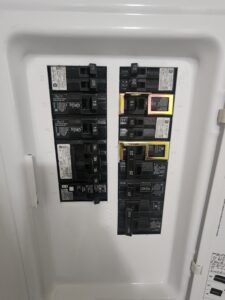
Locating the Main Electrical Switch and Panel
Importance of Knowing
Knowing where to find the main electrical switch and panel in a mobile home is crucial for safety and troubleshooting. The main electrical switch, also known as the breaker box or fuse box, is typically located inside the home. This is where you can access the circuit breakers that control power distribution throughout the house.
It’s important to know this location so that you can quickly shut off power in case of an emergency or when performing maintenance. Understanding how your breaker box is organized allows for efficient troubleshooting when dealing with electrical issues such as tripped circuits or overloaded breakers.
Understanding how to locate and operate your breaker box ensures that you can respond swiftly during emergencies, preventing potential hazards such as electric shocks or fires. Moreover, it enables homeowners to take necessary precautions before conducting any DIY repairs involving electricity.
Tips for Labeling
Labeling the circuit breakers in the electrical panel makes it easier to identify which area of your home each breaker controls. When labeling, use clear and distinct labels indicating which part of your house each breaker corresponds to. For example, “kitchen outlets,” “bedroom lights,” or “bathroom GFCI.”
Consider creating a diagram mapping out which areas of your home are connected to each specific breaker. This way, if an issue arises in a particular area of your home, you can easily identify which breaker needs attention without having to guess or test multiple breakers.
Choosing the Right Electrician for Mobile Home Repairs
Licensed Electricians
Hiring a licensed electrician is crucial. A licensed professional has the necessary training and qualifications to handle electrical work safely and effectively. This ensures that the repairs are carried out in compliance with local building codes and safety standards.
It’s important to verify the electrician’s license before hiring them for mobile home wiring repairs. A valid license indicates that the electrician has met the state’s requirements for practicing electrical work, providing you with peace of mind knowing that your mobile home is in capable hands.
Experience Matters
In addition to being licensed, experience is another vital factor when selecting an electrician for mobile home wiring repairs. An experienced professional is familiar with the unique electrical systems found in mobile homes, understanding their intricacies and potential challenges.
Look for an electrician who has specific experience working on mobile homes. Their familiarity with these systems can lead to more efficient diagnoses and solutions, ultimately saving you time and money on repairs.
Qualifications Inquiry
When evaluating potential candidates for mobile home wiring repairs, asking specific questions can help gauge their qualifications. Inquire about their experience working on mobile homes specifically, as well as any specialized training they may have related to this type of electrical system.
Ask about previous projects involving similar issues or upgrades within mobile homes. Understanding their past experiences will give you insight into how they approach such tasks and whether they are suited for your repair needs.
Safety Measures Discussion
Discussing safety measures with prospective electricians is essential. Inquire about their approach towards ensuring safety during the repair process, including precautions taken to protect your property from damage or accidents while work is underway.
An open discussion regarding safety practices also allows you to assess their commitment towards maintaining a secure environment throughout the repair project.
Check out this article: Power Your Mobile Home: Best Generator Options
Conclusion on Maintaining Safe and Efficient Mobile Home Wiring
Ensuring Safety
Maintaining safe and efficient mobile home wiring is crucial for the safety of everyone living in the home. Regular inspections and prompt repairs can prevent electrical hazards, such as short circuits, electrical fires, and electrocution. Faulty wiring can pose serious risks to the occupants of a mobile home, making it essential to prioritize electrical safety.
Regular inspections by a qualified electrician can identify potential issues before they escalate, ensuring that the wiring system remains in optimal condition. By addressing any concerns promptly, the risk of electrical accidents can be significantly reduced. For example, outdated or damaged wiring can be replaced to prevent overloading circuits and potential fire hazards.
Efficient Electrical Systems
In addition to safety, maintaining efficient mobile home wiring also contributes to the overall functionality of the electrical system. Well-maintained wiring allows for consistent power supply throughout the home, preventing fluctuations and outages. This is especially important in a mobile home where reliable electricity is essential for daily activities.
By prioritizing regular maintenance, homeowners can ensure that their electrical systems operate efficiently, reducing the likelihood of unexpected outages or disruptions. This is particularly beneficial in regions prone to extreme weather conditions, where a reliable power supply is crucial for comfort and safety.
Preventing Escalation
Prompt repairs play a pivotal role in preventing minor issues from escalating into major problems within a mobile home’s wiring. Addressing small faults, such as loose connections or frayed wires, can prevent them from causing widespread damage to the electrical system. This proactive approach helps maintain the integrity of the wiring and prevents potentially costly repairs down the line.
For instance, if a homeowner notices flickering lights or outlets that are not functioning properly, seeking professional assistance promptly can address underlying issues before they worsen. This proactive stance not only safeguards the occupants but also preserves the structural integrity of the mobile home.
Long-Term Cost Savings
Prioritizing prompt repairs for mobile home wiring can result in long-term cost savings. By addressing issues early on, homeowners can avoid more extensive damage that may require extensive rewiring or replacement of components. This proactive approach not only minimizes repair costs but also reduces the risk of potential property damage due to electrical faults.
By investing in regular inspections and addressing any identified concerns without delay, homeowners can effectively mitigate the risk of substantial financial burdens associated with major electrical repairs or replacements.
In conclusion, prioritizing regular maintenance and prompt repairs for mobile home wiring is paramount for ensuring safety, efficiency, and long-term cost savings. By staying proactive in addressing electrical concerns, homeowners can create a secure living environment while optimizing the functionality of their mobile homes’ electrical systems.
Frequently Asked Questions
Is it safe to do mobile home wiring myself?
It’s crucial to prioritize safety when dealing with electrical work in mobile homes. While some minor tasks like changing a light fixture can be DIY, complex wiring should be handled by a licensed electrician to ensure compliance with safety standards and regulations.
How can I troubleshoot power surges and outages in my mobile home?
Start by checking the circuit breaker for any tripped switches. If that doesn’t resolve the issue, consider consulting a professional electrician. Power surges could also indicate problems with the electrical system that require expert assessment and resolution.
What are common electrical problems in mobile homes, and how can I fix them?
Common issues include flickering lights, loose sockets, or circuit overload. Address flickering lights by ensuring proper bulb wattage; tighten loose sockets carefully; and manage circuit overload by redistributing appliances on different circuits or upgrading your electrical panel if necessary.
How do I locate the main electrical switch and panel in my mobile home?
The main electrical switch is typically located near the meter outside your home or inside close to where the power enters. The panel is usually situated nearby as well. If you’re having trouble finding them, consult your manufacturer’s documentation or seek professional assistance.
Why is it important to choose the right electrician for mobile home repairs?
Selecting an experienced electrician ensures that repairs are performed safely and accurately according to industry standards. A qualified professional will have specific knowledge of mobile home wiring requirements, providing peace of mind regarding both safety compliance and efficient functionality.
You may also be interested in our articles:
How to Clean An Air Conditioner: Step-by-Step Guide
Upgrade Your Mobile Home with Quality Bathtubs
Do Manufactured Homes Appreciate in Value? Debunking Depreciation Myths

